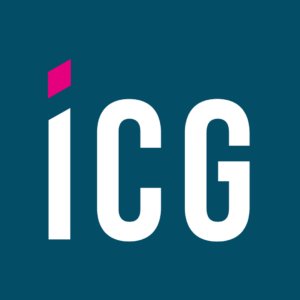Digital Literacy: Moving towards digital self-service
Self-service and digital commerce upended the way we access retail and financial services. The same technologies that are rendering the travel agent obsolete and online banking the norm are making significant inroads into our public services. Within this landscape, customers now expect digital pathways for their services. For housing providers, it is imperative that they embrace these technologies – and do so without leaving their tenants behind.
With local authorities and housing associations under increasing financial pressure, replacing elements of their face-to-face and help desk services with digital channels is becoming more and more common. 38% of housing providers surveyed by the Chartered Institute of Housing cited Universal Credit as being the main driver behind their organisation’s digital transformation. However, in order for these shifts to be successful, cost considerations can’t be the only factor behind digital implementation. Each digital offering needs to clearly illustrate its usefulness to the customer and empower tenants to help themselves.
For housing associations, in order to roll out self-service products, the starting point should be knowing the digital abilities, as well as the level of access of those living within the housing stock. Analysis of how current systems serve both the housing provider and the customer should follow, as well as whether these existing systems are being used to their full potential. Understanding the end-user is crucial to devising an implementation strategy; for example, a digital-only strategy may leave more vulnerable users behind. Adding in digital services and migrating users over incrementally can make sure of two things; that no user gets left behind and that the most confident users can trial any self-service solutions first, giving their feedback on the service along the way.
Companies that cannot realign their channels to emerging customer preferences will suffer. For not only are customers better informed and better connected, they expect the companies with which they interact to be as plugged in to this new world as they are.
The rise of the customer-led economy, The Economist 2013
Many social housing customers will already be using digital services in at least one other area of their lives, whether that’s the self-service checkout at the supermarket, or banking online. It’s common however, that aside from a minority of early adopters, many of us are sceptical of its value when faced with new technology. When researching smart home technology, PwC found only 20% of people expected a connected home device to improve their life, however levels of satisfaction with a device once purchased, doubled. In an ideal migration, both staff and customers feel that the transition to a digital service makes elements of their lives more manageable; as digital services are seen to improve convenience for the customer, the rate of adoption is likely to increase.
As illustrated with the difficulties faced by some social housing tenants dealing with the online application of Universal Credit however, digital literacy levels vary across the population and housing providers are increasingly assuming responsibility to equip those who face digital exclusion with the digital skills they need to participate in an ever more digital world. By giving tenants the tools to engage with services more effectively as well as the wider implications of digital skills training in improved employment prospects, housing providers are building stronger, more sustainable tenancies.
Case Studies: Leading by example
Coventry City Council
Coventry City Council has taken a mixed approach of digital access and face-to-face assistance to help customers engage with new self-service systems. Coventry City Council opened a ‘Customer Services Centre’ in Coventry City Centre. The aim is that the ‘meet and greet’ team can train people on new self-service applications and those without digital access at home can use the computers at the centre to engage with the new services.
My Rent Rewards
This free mobile app allows users to save money specifically for their rent when they spend at participating retailers. The cashback is ringfenced and paid directly to the housing provider. This type of service encourages tenants to engage with digital self-service because it demonstrates clear benefits if they adopt it.
With changes in the housing sector, such as Universal Credit, we thought that tenants would be interested in a product that helped them to save money towards their rent. We believe that an app is the best way to deliver the cashback, due to the popularity of smartphones and apps.
Nicola Fahey, co-founder, My Rent Rewards, Housing Technology ISSUE 65 September 2018
Halton Housing
A strategy adopted by Halton Housing to achieve their goal of having 90% of their customers choose digital self-service channels was to provide those with no feasible access to the internet with a tablet device. This device roll-out was offered to the 15% of residents with a £5 per month SIM and included skills training of how to access public Wi-Fi and in turn, use Halton Housing’s new digital service. They also found those who received a tablet faced less loneliness and social exclusion than before.
As consumers, most of us are becoming well accustomed to self-service in the commercial sector and some services, such as internet banking have been embraced into the daily fabric of our lives. We must remember however, that this was not an overnight acceptance. When implementing new digital services, proof as to the positive impact on customers’ lives is vital for adoption and to an ability to integrate them into any wider scheme for the creation of sustainable tenancies.
Enica Ltd Revolutionise their Energy Management business with MRI Energy
Enica, founded two decades ago, emerged from a background in building services consultancy with a core focus on improving energy and water efficiency within buildings. Over the years, the company has evolved to become a leading provider of innovative…

